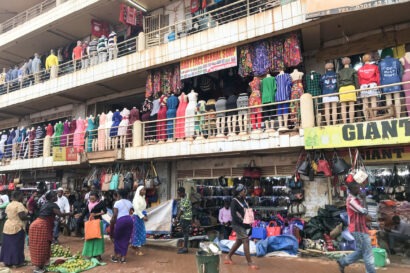How the interplay between DFS pricing and taxation affects the cost of DFS, and why transparency and competition are crucial for a well-functioning market
The pricing strategies used by providers of digital financial services (DFS) such as mobile money can play an important role in the tax liability of the people who use these services. By adjusting prices, providers can shape the overall tax burden users face.
We explore hidden factors in the interplay between DFS pricing and taxation by looking at the pricing scheme, its relevance for DFS taxation, and why transparency matters for competitive pricing.
How does pricing for DFS work?
The price-setting by providers of DFS is dynamic and multifaceted.
- Users typically pay high charges for transferring and withdrawing money – charges that do not reflect the actual cost of providing these services – whereas money deposits are free.
- Depositors do not receive interest on their electronic accounts. So, inflation can cause the value of the money held in electronic accounts to decrease over time, with depositors bearing the risk of losing purchasing power.
- Transfers and withdrawals may be necessary to pay bills, buy goods and services, or meet other financial obligations. Being non-discretionary, or ‘inelastic’, these transactions are less sensitive to changes in economic conditions. Deposits, on the other hand, are considered ‘elastic’ and may fluctuate with changes in income or spending patterns.
How do competition and regulation affect pricing?
While pricing strategies depend on demand and profit margins, competition and regulation may limit the scope for demand-based pricing and could drive down prices for users. To explain this:
- If one company raises prices for transfers and withdrawals of customers with inelastic needs, another company might still offer the same service at prices closer to cost. For example, M-PESA is still by far the largest mobile money provider in Kenya, but the emerging competition has led to a drop in prices of mobile money services. In Senegal, the arrival of fintech company Wave in the mobile money market caused prices to drop by 80 per cent. However, natural monopolistic tendencies resulting from network effects can limit competition in mobile money markets, making it harder for new players to enter and for existing players to challenge the dominant player’s position.
- Regulators can intervene in commercial pricing decisions, set price ceilings, or promote cost-based pricing. Agile incumbents of digital transformation or newcomers who offer new quality services can increase competition and foster innovation.
Why does pricing matter for DFS taxation?
The tax structure, including how it is applied based on pricing decisions, can affect the welfare and economic wellbeing of both DFS users and providers.
While taxing the underlying value of a transaction is more common, DFS taxation can also be a percentage of the fees charged by providers. Provider taxes affect the user if the tax is passed on to them through higher fees.
Taxes tend to reinforce already-regressive pricing policies. Mobile money transactions are often priced with low-value transfers costing more per dollar than higher-value transfers. Taxes that follow the pricing structure will inevitably increase that distortion. This may affect the poor more than the better off, although this is largely unevidenced as yet. Ad valorem taxes can increase a distortion because providers already charge more for transaction types they want to discourage, such as mobile money cash withdrawals.
On the provider side, the impact of DFS taxes is complicated because it depends on how the tax-motivated price increase is distributed between users and providers. When the provider shoulders the tax burden, profits are reduced. When the users bear the tax burden, they face higher prices and potential reduced usage.
In a market with minimal or no price sensitivity, providers are likely to push the tax burden to users through price increases. This can lead to a welfare loss for vulnerable groups such as low-income earners, people working in the informal sector, and women, as they may feel the impact of price increases more heavily due to their lack of knowledge, their brand loyalty, or the cost of switching providers.
A valuable lesson can be drawn from the experience in Côte d’Ivoire, where DFS providers were compelled to bear DFS tax costs to stimulate DFS usage, which at the time was only 20 per cent. However, providers may find other less direct options to pass the costs onto users.
DFS market transparency
Price transparency is sometimes cited as a strategy for reducing the cost of DFS because it allows users to shop for DFS based on price, thereby fostering price competition. Providers are being called to be more transparent in their pricing.
Given the magnitude of the market, DFS providers benefit from price optimisation more than any other industry. However, determining optimal pricing can be incredibly challenging for providers because they are often reluctant to share with their competitors their valuable insights into the usage patterns and behaviours of mobile money users, such as the frequency and type of transactions.
Transparency in pricing would help to place banks and telco companies on the same footing by promoting healthy competition, ultimately benefitting consumers.



